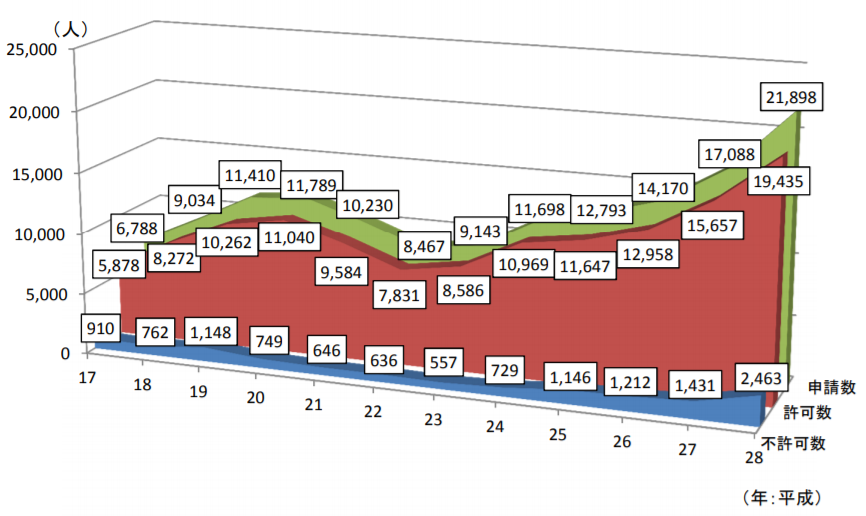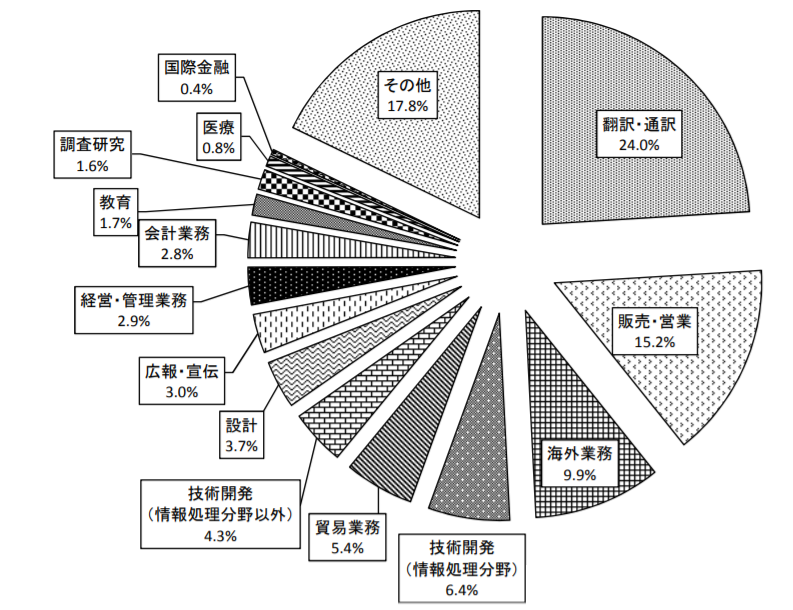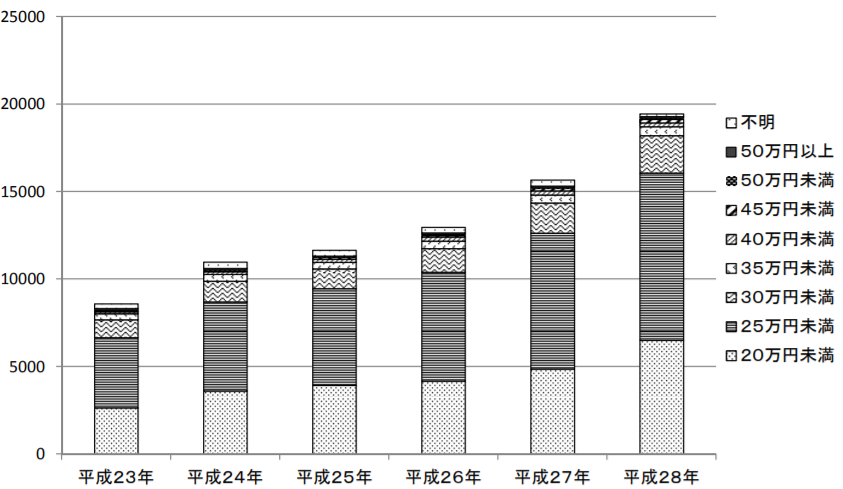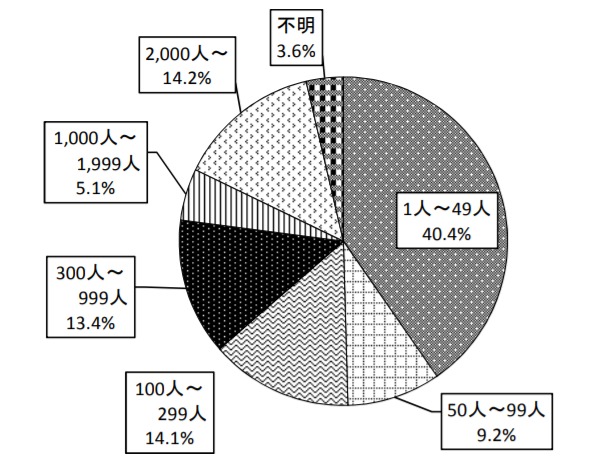What is the situation for finding employment in Japan for international students? Here we introduce in detail about finding employment in Japan for international students, based on official data released by the Ministry of Justice.
The shift in employment of international students.
The number of international students that have entered Japanese companies has been as follows; in 2016, the number of international students applying for permission to change their status of residence for the purpose of finding a job in a Japanese company was 21,898, an increase of 28% on the previous year. Of those, 19,435 applications were accepted, making nearly 20,000 foreign students that got jobs at companies in Japan.
 (※Source: Ministry of Justice “The employment situation of international students in Japanese companies, Heisei 28”. )
(※Source: Ministry of Justice “The employment situation of international students in Japanese companies, Heisei 28”. )From April 2019, restrictions regarding employment and the status of residence of working visas will be further relaxed in order to expand the number of international students finding employment in Japan. In the future, it is expected that even more international students will be hired by companies in Japan.
What kind of jobs do international students have?
What kind of jobs do international students get at Japanese companies? Looking at the breakdown of the data released by the Ministry of Justice, the most common field is in translation /interpreting at 24%, which shows that there are jobs that can make use of language skills. Also, the next most common kind of jobs are in sales (15.2%), followed by “overseas business relations” (9.9%). These three kinds of occupations account for about 50% of the total figures.
 (※Source: Ministry of Justice “The employment situation of international students in Japanese companies, Heisei 28”. )
(※Source: Ministry of Justice “The employment situation of international students in Japanese companies, Heisei 28”. )What is the starting salary of an international student?
What is the average starting salary of an international student? Looking at the graph below, the most frequent occurring salary is between 200,000 yen to 250,000 yen (49.2%), this is followed by less than 200,000 yen at 33.4%. On the other hand, 5% or more of graduates earn salaries of over 300,000 yen, so it is possible to start at a higher salary bracket depending on the company and the kind of skills the employee has.
 (※Source: Ministry of Justice“The employment situation of international students in Japanese companies, Heisei 28”.)
(※Source: Ministry of Justice“The employment situation of international students in Japanese companies, Heisei 28”.)How many employees do these companies employ?
Next, we look at the size of the companies where international students are employed. According to the data, 40% of international students are employed by small and medium-sized enterprises with less than 50 employees, 9.2% at companies with 50-99 employees, which works out at about 50% employed by companies with less than 100 employees.
 (※Source: Ministry of Justice “The employment situation of international students in Japanese companies, Heisei 28”. )
(※Source: Ministry of Justice “The employment situation of international students in Japanese companies, Heisei 28”. )In contrast, about 20% of graduates get jobs at major companies with more than 1,000 employees, so it’s clear to see that there is quite a range of placements of international students, from small to very big companies.
Summary
In this article, we introduced the details of employment in Japan for international students, based on official data released by the Ministry of Justice. It is clear that the number of international students who are employed by companies in Japan is increasing year by year, and the sizes of the companies and the types of jobs these students are getting are very varied.
There is shortage of talent in Japan in all industries due to factors like the declining birthrate, and on top of this companies are accelerating business development overseas in anticipation of the inevitable shrinking domestic market, therefore many companies are increasingly employing more and more international students.
In other words, the range of choices for international students are expanding, which means that the possibility of being hired by a company that you would like to work for is also increasing. You should take advantage of these opportunities and apply for a job at a company that you feel is a good match!
Read articles of Job Hunting Guide for International Students
- Features of job-hunting in Japan
- Japanese hiring culture
- Job-hunting schedule in Japan
- The advantages and disadvantages of working at different types of companies
- Finding employment for international students
- Why do Japanese firms employ international students?
- Self-Analysis
- Industry research
- How to write a good resume
- Entry sheets
- Written exams
- Interview
- The steps for receiving a job offer and joining a company
- The procedure to change a visa status
- About job hunting after graduation














